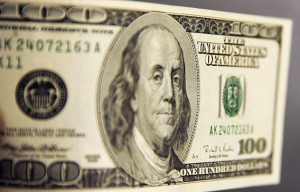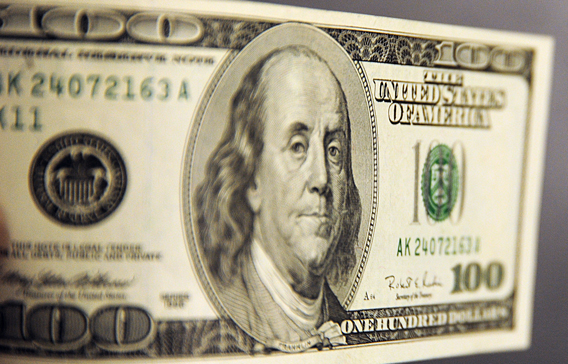
(AFP Photo)
By: Mahmoud Shanishan
The Central Bank of Egypt (CBE) announced on Sunday that it would be releasing $600m worth of tenders to the country’s banks over a 30 minute period in order to increase dollar liquidity and help banks meet their needs regarding the import and distribution of strategic goods.
The CBE has identified 15 items, separated into four separate categories, to be imported three times a week using funds which it has recently provided. These products include various forms of machinery, production equipment, spare parts, intermediate goods, medicine, raw materials, chemicals, and essential food products. This last group includes tea, meat, poultry, fish, wheat, oils, powdered milk, children’s milk, beans, lentils, butter, and corn.
The CBE hopes that the new policy will curb inflation and halt price increases that have plagued Egypt’s economy since the country’s currency was first devalued after the outbreak of the 25 January 25 Revolution.
The CBE’s decision is a direct reflection of the country’s black market currency exchange rates, which have recently seen the price of the dollar drop significantly.
One trader recently claimed that he currently purchases dollars for EGP 7 and sells them for EGP 7.2. Just last Sunday, he said, the price of selling dollars was EGP 7.45.
Ehab Mohamed, an official with the Al-Haramein Exchange Company, said that the price of dollars has decreased as a result of diminishing demand. He added that he expected to see a continued drop in prices over the coming days.
He went on to say that the price of the sale of dollars at his company reached EGP 7.31 on Sunday, while the price of the purchase of such dollars reached EGP 7.20. This is opposed to EGP 7.60 and EGP 7.30 respectively the day before, representing a 29 piaster drop in just one day.
Last week Egypt received $3bn in aid from Qatar and, according to some reports, $2bn from Libya, a move which has encouraged officials within Egypt’s banking sector to pump increased dollar liquidity into the market.
Egypt’s government, as a result of the recent aid, has been able to increase its foreign currency reserves to $19.5bn, in an attempt to meet International Monetary Fund (IMF) conditions set forth for the acceptance of the country’s pending $4.8bn loan.
An IMF delegation is currently in Cairo to negotiate the details surrounding this loan. Some fear that the acceptance of the country’s IMF loan will push Egypt’s Central Bank to pursue its previous policy of maintaining the price of the pound in order to avoid further price increases, a policy that previously cost the country $22bn in foreign currency reserve losses.




